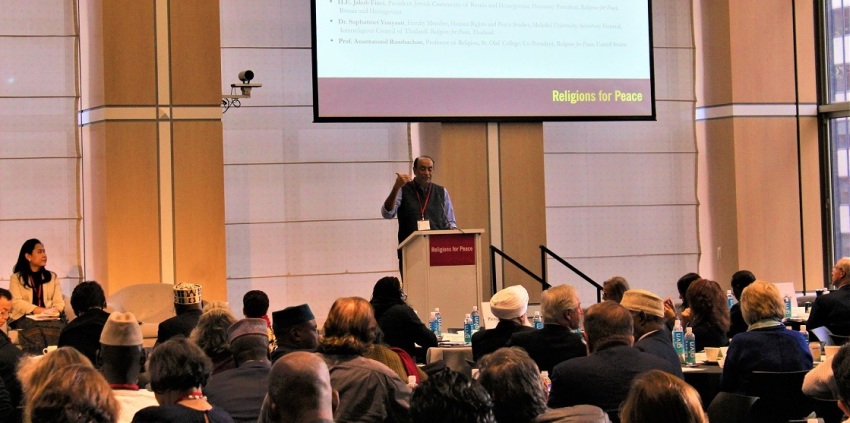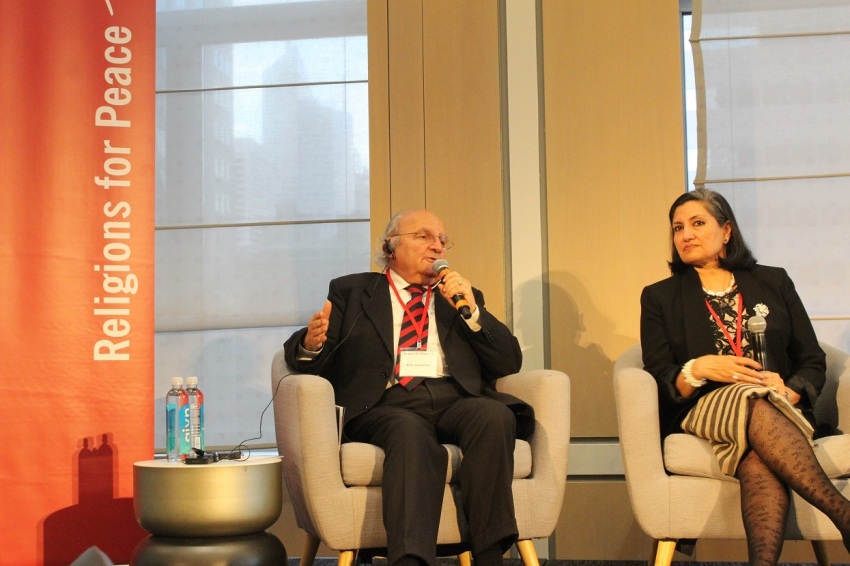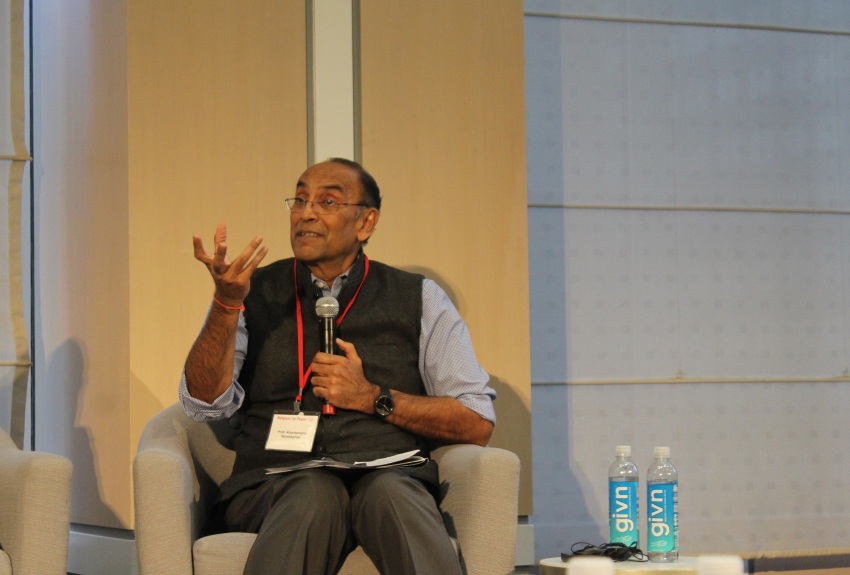World’s largest coalition of religious leaders urged to be ‘moral conscience’ of nations

NEW YORK — A Minnesota professor of religion warned the world’s largest coalition of religious leaders that getting involved in politics can compromise their “moral voices” and suggested they should instead aspire to be the “moral conscience” of their countries to promote a more effective agenda of peace.
“I think we have to acknowledge as religious leaders, as religious communities, how easy it is that we have been seduced by the trappings of the state, seduced by the opportunity for power, as a result of which we tend to compromise our moral voices, our ethical voices,” Anantanand Rambachan, a Hindu professor of religion at St. Olaf College, said during a plenary session on advancing multi-stakeholder partnership for freedom of thought, conscience and religion at the Religions for Peace conference which ended on Friday.
Religions for Peace is the world’s largest and most representative multi-religious coalition advancing common action among religious communities for peace. The organization works to transform violent conflict, advance human development, promote just and harmonious societies, and protect the Earth.
Responding a question about what the right relationship between states and religious communities should be, Rambachan argued for the position of the “moral conscience.”
“I’ll put it this way, we should not aspire to be the masters of the state, nor should we aspire to be the servant of the state. We should aim to be the moral conscience of all the countries that we live in, especially the moral voice and the moral conscience for those who are powerless, those who are marginalized, those who are oppressed,” Rambachan said Wednesday.

Members of the panel such as Jakob Finci, president of the Jewish Community of Bosnia and Herzegovina, and Bani Dugal, principal representative to the U.N.'s, Bahá’í International Community and co-president of Religions for Peace, U.S., also noted how religion has been exploited in many parts of the world to wage conflict.
“Everyone knows how to use religion to start a war but nobody knows how religion can be used for the peaceful solutions,” he quipped.
He suggested, however, that people within different religions should work to know more about each other and their faith traditions.
“The reasons for the war is not knowing each other,” he said.
In June, U.N. Secretary-General António Guterres launched the U.N. Strategy and Plan of Action on Hate Speech and told member states they need to “do better at looking out for each other.”
“Hate speech may have gained a foothold, but it is now on notice,” Guterres said. “We will never stop confronting it.”
The new strategy and action plan promotes respecting the human rights of all, barring any discrimination.
He noted that the world was “in danger of forgetting” that the U.N. Charter was drafted after the world had witnessed genocide on an industrial scale and hate speech against Jews culminated in the Holocaust.
“Around the world, we see a groundswell of xenophobia, racism and intolerance, violent misogyny, anti-Semitism and anti-Muslim hatred,” he said, adding that Christians were also being systematically attacked in some areas.
Dugal, who moderated the panel, asked Rambachan how the religious community could be a part of this effort. He explained that everyone will have to examine their faith tradition with humility to engage in healthier dialogue with those who believe differently.
“I think that religious communities, all religious positions, will have to start from a place of deep humility about our traditions. A part of what that humility means is the willingness to also be self-critical of our traditions and the history of our traditions. If we take an honest look at our traditions across history we will certainly see that we have objectified some communities and we have, at various points in history, defined ourselves in relation to the diminished worth of others. And we have often done that in the name of our religion,” Rambachan said.
“I think that one of the liberating truths of our religious traditions, if our traditions are to be saved from a narrow parochial view, is to embrace fully, and seriously, the core teaching that human beings and the universe constitutes an organic unity that no one is marginalized that every human being enjoys intrinsic dignity and value,” he added.
Rambachan further explained that while being an advocate for human rights is good, the religious community has the power to promote those rights in a way that brings reverence.

“From a place of theology we can speak about the inestimable value of the human being which evokes respect,” he said. “Which evokes reverence. The language of rights is not the language of reverence for God. The language of rights leads us to tolerance at best, but it can’t lead us to a place of … respect for the other. ... This is where we, as the religious community, have to speak fully,” he said, noting that this is the only strong source of overcoming hate.
In his observations of relationships between Jews and Muslims in Europe, Finci also noted that he doesn’t see the issue between Jews and Muslims as primarily about religion.
“First of all, speaking about the Middle East, I don’t think it’s a war between Judaism and Islam, because as you know better than myself probably, is the religions are very similar theologically. The reason for all that is happening now are the same reasons we have today. Today we have in Europe a lot of migrants from the original Islamic countries who are not in war at all but they are just trying to find a better way of life,” he said.
“As religious leaders, we accept the guilt that politicians misuse religion as a vehicle against others. And a crime in the name of religion is a crime against religion,” he added.



























